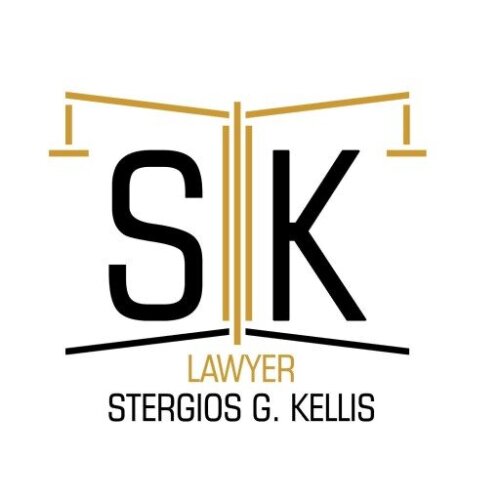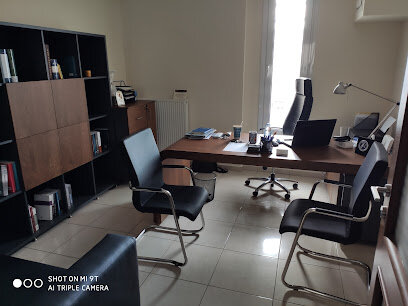Best Sanctions & Export Controls Lawyers in Xanthi
Share your needs with us, get contacted by law firms.
Free. Takes 2 min.
List of the best lawyers in Xanthi, Greece
About Sanctions & Export Controls Law in Xanthi, Greece
Sanctions and export controls are legal tools used by the United Nations, the European Union and national governments to restrict trade, finance and other interactions with specified countries, entities or individuals. In Greece these measures are implemented mainly through EU regulations and national implementing measures. Xanthi, as a regional city in northeastern Greece, is subject to the same EU and national rules as the rest of the country. Local companies, traders, freight forwarders, banks and individuals in Xanthi must follow those rules when exporting goods, transferring technologies, making financial payments or dealing with counterparties that may be subject to restrictions.
Types of measures you are likely to encounter include - trade bans on certain commodities, dual-use export controls on goods and technology with civilian and military uses, arms-export licensing, asset freezes and travel restrictions on listed persons, and restrictions on providing services or financing. Enforcement is carried out by customs authorities, financial regulators and criminal prosecutors, and non-compliance can lead to administrative fines, criminal liability and reputational harm.
Why You May Need a Lawyer
Sanctions and export control matters are technical and can involve overlapping EU, UN, national and sometimes third-country rules. You may need a lawyer in Xanthi in situations such as:
- A shipment is detained or seized by customs because of suspected restricted goods or an alleged prohibited destination or end-user.
- A bank in Xanthi or elsewhere freezes funds belonging to you or a client because of a sanctions listing or suspicious transaction.
- You have received an inquiry, inspection notice or criminal investigation from Greek authorities over alleged breaches.
- You are unsure whether a product, software or technology requires an export licence, or whether a proposed export is permitted.
- You need to carry out due diligence on a counterparty, joint venture partner or agent to avoid dealing with sanctioned persons or entities.
- You want to design or update an internal compliance programme that covers sanctions screening, record-keeping, licence procedures and staff training.
- You need to make a voluntary disclosure to mitigate liability, or to apply for an authorisation or licence from the competent authority.
- International elements raise questions about extra-territorial sanctions - for example, US secondary sanctions - and how they may affect your business in Greece.
Local Laws Overview
Key legal features to understand when dealing with sanctions and export controls in Xanthi include the following.
- EU Primacy and Direct Effect - Most sanctions affecting Greece are adopted at EU level and apply directly in all member states. EU Council regulations are binding and directly applicable without separate Greek legislation. The European Union Dual-Use Regulation sets out controls on items with both civilian and military applications.
- National Implementation - Greece enacts national measures to implement some UNSC or EU decisions and to set out procedures, licensing authorities and penalties. Certain licences, notifications and enforcement powers are administered domestically.
- Licensing and Authorisations - Exports of controlled goods - such as dual-use items, military equipment and certain sensitive technologies - typically require a licence from a designated national authority. Licensing decisions involve end-use and end-user checks, transit and re-export rules, and sometimes inter-agency clearance.
- Customs and Border Controls - The Hellenic Customs Authority enforces export and sanctions restrictions at the border. Local customs offices in the region handle declarations, inspections and seizures. Proper classification and documentation are essential to avoid delays or penalties.
- Financial Sanctions - Asset freezes and prohibitions on providing funds or economic resources to designated persons are enforced by banks and financial institutions under rules implemented in Greece. Suspicious transactions must be reported and may trigger account blocking or reporting to financial intelligence units.
- Criminal and Administrative Penalties - Violations can lead to administrative fines, confiscation of goods, civil liability and criminal prosecution. Penalties vary depending on the nature and gravity of the breach and whether it was intentional or negligent.
- Record-keeping and Compliance Obligations - Exporters and service providers are usually required to keep records, perform sanctions screening and carry out due diligence on customers and end-users for a specified retention period.
- Interaction with Non-EU Sanctions - Companies in Xanthi that do business with non-EU partners, use US-origin technology, or operate through international banking channels should be aware of potential extra-territorial effects, such as US primary or secondary sanctions. Those rules can create additional commercial risks even when EU rules apply domestically.
Frequently Asked Questions
What is the difference between sanctions and export controls?
Sanctions are targeted measures - such as asset freezes, trade embargoes and travel bans - that restrict interactions with specified countries, persons or entities. Export controls are licensing regimes that restrict the export, transfer or brokering of certain goods, software or technology - often because they have potential military uses or pose security or proliferation risks. There is overlap - a sanctions regime can also prohibit exports to a sanctioned destination or person.
Do EU sanctions apply in Xanthi?
Yes. EU sanctions adopted by the Council of the European Union apply directly across all EU member states, including Greece and Xanthi. Greek authorities are responsible for enforcing those sanctions domestically.
How can I check whether a person or company is on a sanctions list?
Sanctions lists are maintained at EU and UN levels and are used by financial institutions and compliance teams. If you are unsure, you should run a sanctions-screening search using the full name, aliases and other identifiers. For complex cases - for example where names are similar or where there are transliteration issues - consult a lawyer or compliance specialist to avoid mistaken identity and to interpret list details such as listing grounds and applicable measures.
My shipment has been detained by customs in Xanthi - what should I do?
Do not attempt to move the goods. Notify your legal counsel immediately and preserve all shipment documents, communications and invoices. A lawyer can advise on the grounds for detention, help you prepare an appropriate response, apply for release if a legitimate authorisation exists, and, where necessary, negotiate with customs or lodge administrative appeals.
Do I need a licence to export software or technology from Xanthi?
Possibly. Many countries classify software and technology as dual-use if they have both civilian and military applications. The EU Dual-Use Regulation and national implementation rules set out whether a licence is required. The requirement depends on the item classification, destination, end-user and intended end-use. Seek classification advice and, if needed, apply for a licence before export.
What happens if a bank in Xanthi freezes my account because of sanctions?
Banks are required to block accounts and funds linked to designated persons or suspicious transactions. If your account is frozen, you should seek legal advice immediately to determine whether the freeze is correct, to assess whether an exemption or licence exists, and to pursue procedures for unfreezing funds if appropriate. Do not attempt to bypass the freeze.
Can a Greek company be criminally prosecuted for export control breaches?
Yes. Depending on the seriousness and intent of the breach, individuals and legal entities can face administrative fines and criminal charges. Criminal liability tends to arise for intentional circumvention of controls, large-scale violations or exports linked to prohibited military end-uses. A local lawyer can explain potential penalties and defence options.
Are there safe-harbour steps I can take to reduce legal risk?
Implement a clear compliance programme - including sanctions screening, due diligence on customers and intermediaries, staff training, record-keeping and written procedures for licence applications. Consider pre-export checks, accurate commodity classification, and end-user verification. If you discover a potential violation, consider voluntary disclosure to the competent authority - such disclosures sometimes mitigate penalties.
How do US sanctions affect businesses in Xanthi?
US sanctions can have extraterritorial effects, especially where transactions use US dollars, involve US persons, or include US-origin goods or technology. Greek businesses dealing internationally should assess whether US sanctions apply to particular deals and seek counsel to understand the risks of secondary sanctions or de-risking by international banks.
How do I find a qualified sanctions and export controls lawyer in Xanthi?
Look for lawyers with experience in international trade law, EU sanctions, customs practice and compliance. Local counsel in Xanthi may coordinate with Athens-based or international law firms for cross-border issues. Ask about experience with licence applications, customs proceedings, financial sanctions and criminal defence. Check credentials, request references and confirm language capabilities if you need advice in English as well as Greek.
Additional Resources
Useful organisations and institutions to consult when dealing with sanctions and export controls in Xanthi include -
- Hellenic Ministry of Foreign Affairs - for information on sanctions measures and national implementing acts.
- Hellenic Ministry of Development and Investments - for export licensing procedures relating to dual-use and strategic goods.
- Hellenic Customs Authority - for customs procedures, detentions, seizures and export documentation.
- Bank of Greece and the national Financial Intelligence Unit - for guidance on financial sanctions, suspicious transaction reporting and blocked funds.
- European Commission - Directorate-General for Trade and the EU Council - for EU sanctions and export control policy and regulations.
- European External Action Service - for EU sanctions decisions and listings.
- United Nations Security Council - for UN sanctions regimes that EU and Greece implement.
- Local Chamber of Commerce in Xanthi - for practical support and contacts with customs brokers, freight forwarders and business guidance.
- Xanthi Bar Association or the relevant local bar - for lists of qualified lawyers in the area and regulatory guidance on legal practice.
Next Steps
If you believe you need legal assistance in Xanthi regarding sanctions or export controls -
- Stop the potentially problematic activity immediately - for example, suspend the export, payment or transfer in question - and preserve all documents and communications.
- Gather and organise relevant documents - purchase orders, invoices, shipping documents, contracts, licence applications, communications with authorities, customer due diligence records and any customs or bank notices.
- Run a sanctions-screening check on counterparties and beneficial owners. Note any hits and the identifiers that match the sanctions lists.
- Contact a qualified lawyer experienced in sanctions and export controls. If you are in Xanthi, ask for counsel with both local customs experience and international sanctions knowledge, since many cases involve EU or extra-territorial elements.
- Discuss immediate relief options with counsel - such as applications for licences, urgent appeals against seizures, requests to unfreeze funds, or voluntary disclosure strategies.
- Plan compliance fixes - counsel can help you design or update sanctions and export-control compliance procedures, train staff and document practices to reduce future risk.
- Keep records of all steps taken and communications with authorities and advisers. Clear documentation helps demonstrate good-faith efforts to comply and can be important in any administrative or criminal proceedings.
This guide is informational and does not replace personalised legal advice. For any specific situation contact a qualified lawyer in Xanthi who can assess the facts and advise on the applicable law and best course of action.
Lawzana helps you find the best lawyers and law firms in Xanthi through a curated and pre-screened list of qualified legal professionals. Our platform offers rankings and detailed profiles of attorneys and law firms, allowing you to compare based on practice areas, including Sanctions & Export Controls, experience, and client feedback.
Each profile includes a description of the firm's areas of practice, client reviews, team members and partners, year of establishment, spoken languages, office locations, contact information, social media presence, and any published articles or resources. Most firms on our platform speak English and are experienced in both local and international legal matters.
Get a quote from top-rated law firms in Xanthi, Greece — quickly, securely, and without unnecessary hassle.
Disclaimer:
The information provided on this page is for general informational purposes only and does not constitute legal advice. While we strive to ensure the accuracy and relevance of the content, legal information may change over time, and interpretations of the law can vary. You should always consult with a qualified legal professional for advice specific to your situation.
We disclaim all liability for actions taken or not taken based on the content of this page. If you believe any information is incorrect or outdated, please contact us, and we will review and update it where appropriate.












